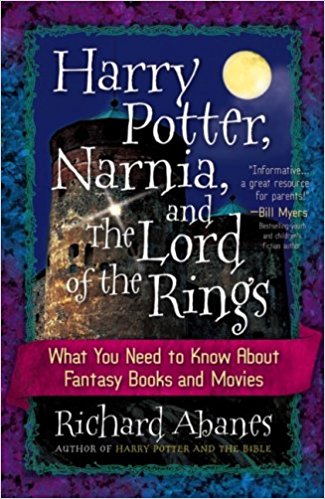What To Make Of Dragons: A Reprise
Dragons aren’t as popular as they once were, certainly, but they represent fantasy in many ways. Off and on I run across comments that seem to indicate an element of conservative thought that is still suspicious of fantasy, and hence, of dragons. I hesitate to say this kind of thinking comes from Christians, but certainly it comes from those who cling legalistically to a set of do’s and don’ts they want to impose upon others. And truth be told, for the most part, any objections to fantasy come from those who would include themselves in the camp of Christians.
Some years ago I read Harry Potter, Narnia, and the Lord of the Rings by Richard Abanes (Harvest House). In this discussion, Abanes opens with an apology for fantasy. Perhaps his most powerful statement, however, is this:
We must never underestimate the power that a certain piece of literature, or body of literature, can have over a generation. It can ultimately affect society in general on a very large scale in years to come.
Especially with society’s current band-wagon mentality, it seems that an author’s influence can be widespread. What disturbs me is that critics holding to a legalistic view of fantasy elements are missing that truth. Or more accurately, their answer to that fact is to cocoon their children. If J. K. Rawling, for instance, is writing something outrageously popular, something that a generation of young people have been influenced by, but . . . horrors . . . which involves magic and wizards and ghosts and magic, well the answer is to condemn all fantasy and keep children away from it!
There are legitimate questions about magic and wizards and dragons and ghosts. The Bible is not silent on the subjects of sorcery, and reportedly mediums are under God’s judgment. But what does that have to do with fiction?
As Mr. Abanes points out, literature, and especially fantasy, creates a world that entwines the material world with the spiritual. I can’t help but wonder if the great rise in spirituality (often expressed in forms of Eastern religion) in this postmodern era doesn’t account in part for the elevated interest in fantasy, whether traditional, dystopian, supernatural, or steampunk.
Here, then, is the crucial point. If we as believers in Jesus Christ as Lord and Savior want to engage our culture and give our eyewitness accounts of the good news, should we not enter the arena that offers a ready forum? Should we not be the premier fantasy writers? As yet, however, Christian fantasy, apart from the greats, has not taken our culture by storm. Not like Rowling did or Stephenie Meyer.
 Perhaps the Harry Potter phenomena or the vampire fixation were passing fads. But perhaps they are reading experiences that are helping to shape the thinking of a generation. Shouldn’t Bible-believing Christians see that as our job?
Perhaps the Harry Potter phenomena or the vampire fixation were passing fads. But perhaps they are reading experiences that are helping to shape the thinking of a generation. Shouldn’t Bible-believing Christians see that as our job?
So what should we make of dragons . . . or magic or wizards or trolls or faeries? Do they belong in the stories our children read? Do they belong in the stories we Christian authors write?
This post is a revised and edited version of one that first appeared here in April 2009.










































Yes and yes, if done the right way. Faeries can be agents of chaos (See Jim Henson’s Labyrinth) or agents of renewal (See the dryads of Narnia or the elves of LOTR). The key is balancing these things against a Biblical world and life view. This world and life view is made to see things in a different light, more focused on reconciliation of man and nature to God. Faeries in particular can be used in this way, going back to the original legends and the literary fairy tale tradition. It’s all a matter of conscience and knowing where you stand.
Well said, Tamra. I agree that faeries might even be easier than dragons to handle as good or evil. Dragons have been recently “redeemed” by writers who have imagined them as either good or evil and not just by nature evil. The same is true about vampires. And when we’re dealing with the pretend or with myths and legends, who’s to say a dragon has to be evil? Or a vampire.If the author wants to refashion the old icon, so be it.
Now if we were talking about refashioning what is not myth–Satan, for instance–then the story would be problematic, I believe.
Becky
Oh, 100% agree. Making Satan “good” is just one of the ways he tries to snare people (Did God Really Say…) I’ve been liking the idea of good orcs lately.
Good orcs! Interesting! I don’t think that’s been done before!
Becky
They’re rare, only two come to mind: Orrig from the “Daughter of the Lilies” Webcomic and Durotan from the Warcraft movie. I’m working with one who’s a gardener right now. Think Sam Gamgee in orc form and you’ll about have it.
I think that, in some cases, the desire for ‘good’ dragons or vampires can be an inquiry into the nature of redemption. If humans, even the worst, have the chance to be redeemed, why would another created sentient being not have the same chance? (That was Tolkien’s problem with orcs, as I recall.)
Your question is a powerful one, Becky. What does all this have to do with fiction? Everything. I echo Tamra’s plea for a biblical worldview in our writing. Mediums, for example, are doomed (Is. 8:19-22) for what they practice. There are some things beyond redemption, and this is one of them — God’s servants do not seek the dead (Deut. 18:11), so a story about a “Christian medium” would bring no honor to the One who warns us not to do these things. It is abomination in His sight, whether we like and/or agree with it or not. And only fools do what YHWH forbids. Perhaps that’s an extreme example, but it’s one worth noting in today’s culture. God’s servants do not traffic with the dead, no matter how popular that genre might be.
So what about dragons? Kemper Crabb’s song Tannin (one of my favorites) is a good starting point!
Keep us thinking! Great post!
Thanks, HG. I appreciate you adding to the discussion. Let me play “devil’s advocate” for a sec and ask a question. Well, two. Why wouldn’t a medium be beyond redemption? I can see that that person wouldn’t still be a practicing medium, but I think of all those people in Ephesus who brought their books of magic and spiritism to be burned. Would none of them have been former mediums who repented?
If you mean no unrepentant medium, I’m right there with you. Of course, I think stories can have unrepentant characters, too.
But second question. What do you think about stories with ghosts? Because, you know, the whole dead thing.
Becky
The whole dead thing, love it! I meant of course an unrepentant medium, not one who continues in their sin. I also meant the crazed notion of a story about a “Christian medium” who calls up the dead. Funny you should mention ghosts. My novel Jezebelle answers that question, so I would direct you there. She’s a ghost, and so much more. Not the kind of lady you’d want around. Ghost stories per se don’t bother me, but we need to be wary of any supposed biblical worldview tale where a dead person gets “saved.” I think that’s coming down the road, perhaps it is almost upon us in this age of universal non-judgmentalism. We also need to be careful that popular conceptions about ghosts not found in the Bible don’t color our perceptions. I’ve guest blogged on this subject at Donna Schlachter’s and Leeann Betts’ blogs back last October, of course. Thanks!